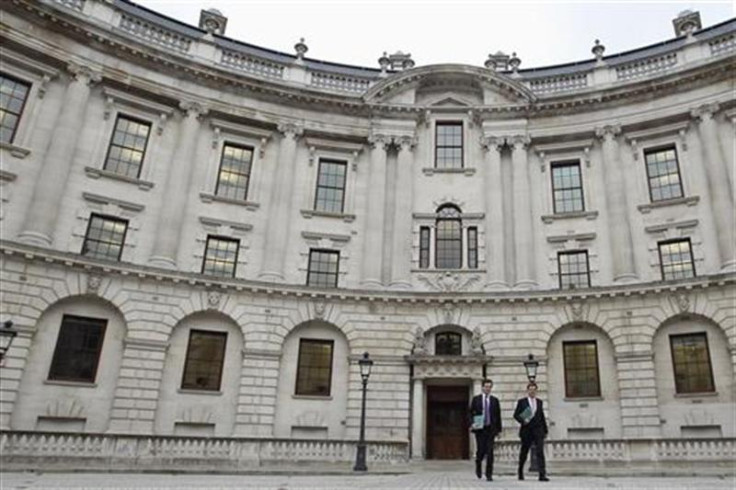Libor Fixing Scandal: UK Treasury Releases Wheatley’s Libor Battle Plans

Britain's chief financial watchdog has called on bankers to fundamentally reform the world's most important interest rate market, calling it "not fit for purpose" in a paper that could lead to new alternatives in the $300tn benchmark.
The Financial Services Authority's (FSA) managing director and the head of an independent review set up by the government into the structure of the London Interbank Offered Rate, or Libor, published a discussion paper that will lead to an "overhaul" of the way Libor is set, in the wake of the Barclays Libor rigging scandal.
"The existing structure and governance of Libor is no longer fit for purpose and reform is needed. It is clear that regardless of the outcome of ongoing international investigations, trust in a vital part of the financial system has been badly damaged and timely action is needed to repair it," said Martin Wheatley, head of the independent review set up by the Treasury. "Today, we are taking the first step in this process by launching the Wheatley Review discussion paper, which seeks responses from a wide range of market experts and international stakeholders. This review aims to ensure that Libor is reformed in whichever way fully restores credibility and trust."
The review stated that retaining Libor unchanged in its current state is "not a viable option", given the scale of identified weaknesses and the loss of credibility that it has suffered.
When Barclays settled with US and UK regulators for a record fine of £290m for rigging Libor and Euribor, various regulators around the world revealed that many other banks are still under investigation for similar rate manipulation or have been found liable for similar activities under different jurisdictions.
Reports say that the banks under investigation in Europe could be as high as 43, as that is the total number of banks that sit on the Euribor panel, which is hosted by the European Banking Federation.
The FSA said there are still six banks under review in the UK and Asian regulators, such as Japan has also found several traders and banks liable for manipulating that regions key interest rate through false level submissions.
"Therefore, LIBOR has to be significantly strengthened to take account of these weaknesses, while, in parallel, alternative benchmarks that can take on some or all of the roles that LIBOR currently performs in the market should be identified and evaluated," said the report.
The review also outlined three options as to how to change the way Libor is calculated. The report says that the mechanism for calculating Libor could be significantly improved, with the calculation and compilation methodologies made more robust and transparent in the light of the issues identified.
"For instance, a trade reporting mechanism could be established to improve the availability of transaction data," it said. "Governance of the Libor process could be amended to make it more independent, robust and transparent, both within the contributing banks and within the administrator of LIBOR. For example, a code of conduct could be introduced to establish clear guidelines relating to policies and procedures concerning LIBOR submissions."
Wheatley's review also calls for the tightening of the regulatory framework by bringing administration of or submission to Libor within the regulatory purview.
However it did add that while the markets will be calling for an alternative to Libor, since Libor is the most frequently utilised benchmark for interest rates globally, referenced in transactions with a notional outstanding value of at least $300tn, "any migration to new benchmarks would require a carefully planned and managed transition, in order to limit disruption to the huge volume of outstanding contracts that reference Libor."
The banking industry has until 7 September this year to respond to Wheatley's Review. Final recommendations to be made by the end of next month and some market participants are predicting that some of these changes could be written into UK law by the end of next year.
© Copyright IBTimes 2025. All rights reserved.






















